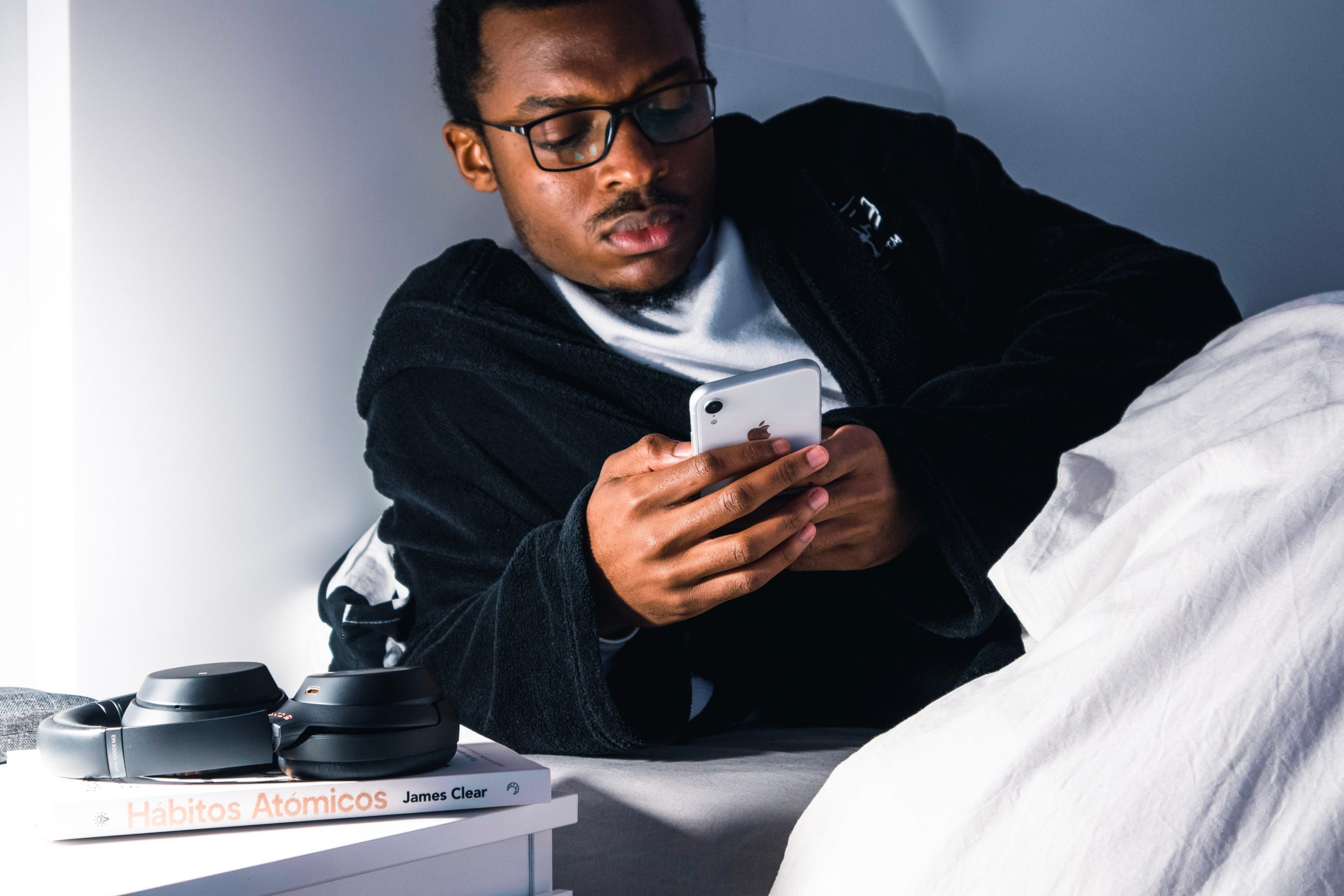Sleep is one of the most overlooked necessities for good wellbeing. It’s foundational support for our physical and emotional health, yet it’s often sacrificed with a late night scroll on social media. The connection between sleep loss and social media has been suggested, but do we really hurt our sleep by scrolling at night?
The National Sleep Foundation recommends 7-9 hours of sleep each night for the average adult. Most of us fall short for a variety of reasons, including social scrolling. 69% of adults and 81% of teenagers in the United States use social media and research indicates that most Americans check social platforms at least once each day. Many of us do so close to bedtime. The negative correlation between sleep loss and social media depends on a number of factors, including frequency, degree of FOMO, and the strength of impulse to scroll.
Frequency matters
While a one time scroll may not have a negative impact on sleep, excessive social media use is more likely to cause sleep loss and create a risk of other sleep issues. A variety of emerging studies are discovering the same thing – mental health rises and falls based on time spent on social media. Some of the studies report:
- Depression is almost three times more likely among frequent users.
- Two hours or more of social media use among teens leads to self-reporting of “poor” or “fair” mental health as compared to occasional users.
- Users who reduce social media to thirty minutes a day have significantly lower depressive and anxiety symptoms than the control group.
Poor mental health is also strongly correlated with poor sleep, so it’s important to pay attention to your sleep loss and social media frequency.
FOMO
The Sleep Foundation suggests that “people who experience more FOMO are more likely to check their social media within 15 minutes of trying to sleep, significantly contributing to sleep issues.” By seeing this attribute in people who are more driven by a fear of missing out we are better able to connect the dots between sleep loss and social media use. As we try to catch up on connections they may have missed during the day, we turn to scrolling at night. In reality, these digital “connections” send us into a spiral of comparison and leave us feeling more isolated. Anxiety, envy, and resentment rise and self-esteem tumbles. Sleep loss is a byproduct of these emotions and is strong support for stopping the scroll before bedtime.
Do you work in higher education? Social media can take a toll on students’ mental health. Visit our For Schools page to learn how BetterYou helped Stanford students get 30 more minutes sleep per night and 1,000 more steps per day.
Drive to scroll
Sleep loss and social media become entangled when the drive to scroll harms our mental health. When we don’t get enough sleep our mental health suffers and when we are unable to stop ourselves from scrolling, we harm our mental health. This is the mess of sleep loss, social media and mental health. Psychologists estimate that about 5-10% of the population meet the criteria for social media addiction. It looks much like any other addiction and includes:
- Being overly concerned with social media
- Driven by an uncontrollable urge to log on or use social media
- Devoting so much time to social media use that it impacts your quality of life in other areas
While we may or may not exhibit all the symptoms of social media addiction, evaluating where we fall on the “drive” scale helps us make necessary adjustments to our night time sleep routine.
If you’ve been impacted by sleep loss and social media use and would like support making this habit change, reach out to us at BetterYou. We’d love to help you take back your time and focus on the things that matter most to you.



